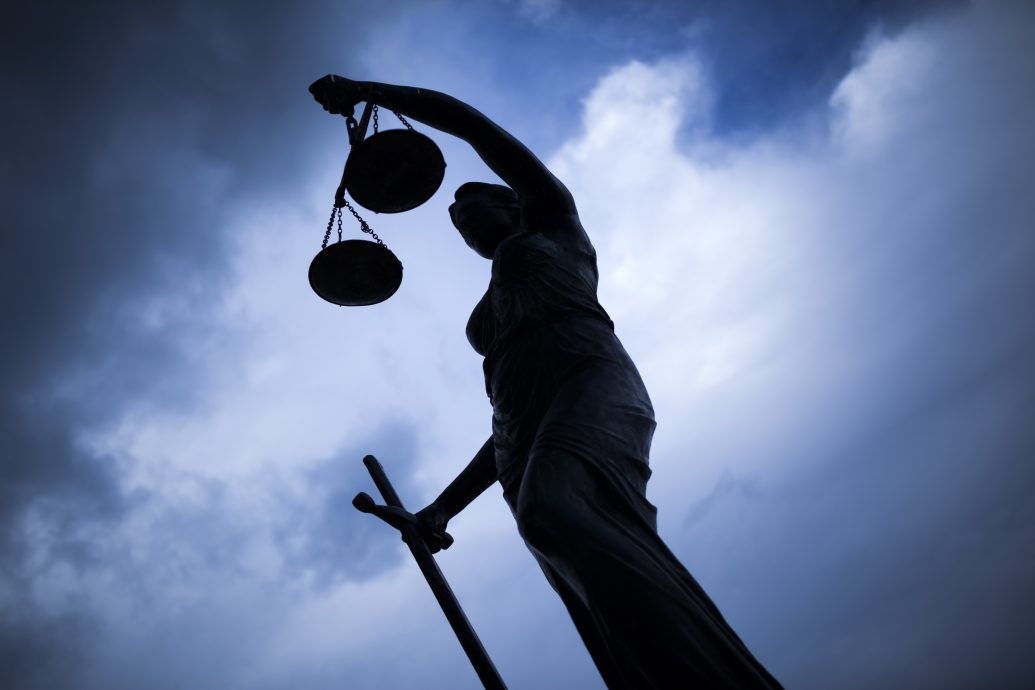The present abuse of executive power through and with the administrative state has been generously prepared over many decades.
A Campaign for a Seamless Rule of Law
In this year’s presidential campaign, it would be a wonderful contribution to the republic and perhaps a winning move to run credibly on a rule of law platform. This kind of platform is to be distinguished from a “law and order” one, because it emphasizes that in a well-ordered republic that government must enforce order only through law. And this slogan also underscores that the problem we face is not simply or indeed mainly lawlessness on the streets, but lawlessness in government. Respect for law must begin at the top.
To be sure, to reach the public, the argument may begin from the lawlessness we are witnessing in some of our cities and towns. But here the argument must be carefully made. It is right and proper for a candidate to critique the “Black Lives Movement.” Its catchphrase “Hands Up, Don’t Shoot” is based on a lie. The Justice Department showed that far from surrendering Michael Brown was the aggressor in the confrontation in Ferguson. The more general premise of the movement that there is a systematic racist killing of blacks by the police is also false and giving credence to it will lead only to more homicides in minority communities, as police stand down. On the other hand, there is indeed too much lawlessness among police. As my colleague Max Schanzenbach suggests, it is largely the consequence of union and civil service protections that prevent police departments from quickly weeding out the bad apples that exist in any paramilitary organization. Thus, better law on the streets requires a different structure of rules for legal discipline.
But far more dangerous to the republic’s future is the lawless Presidency. President Obama has repeatedly broken the law to help keep the Affordable Care Act afloat. The President himself said that he did not have the power to provide such large numbers of illegal immigrants with a new status that would prevent their deportation and give them the right to work in the country. And then he turned around and did just that.
The President and his apologists justify the move to executive action in these and other areas by saying that gridlock makes government dysfunctional. But gridlock is built into the law of the separations of powers. And in any event, the President could have compromised with Republicans by giving them much more of what they wanted and getting much less of what he sought. A President who cuts through congressional inaction by unilateral decree poses a danger to constitutional government and generates more vitriol and political polarization. And thus a rule of law candidate should run on a platform of presidential restraint, promising to abide by Article I, even when inconvenient. Compromise through respect for the separation of powers is the way to bring the nation together.
Finally, the Scalia vacancy is an invitation to remind voters of how essential is a lawful Supreme Court. The four justices who currently adhere to a progressive agenda (sometimes joined by Justice Kennedy) often undermine the law of rule. It is not only that they are not committed to the original meaning of the Constitution. They are also not committed to following neutral principles when they conflict with progressive imperatives. This is most obviously true in high stake cases and, as I have argued, most dangerously true, when it is comes to speech rights at election time. Yet another great threat to a democratic republic is a Court that empowers our politicians to shape the structure of political speech.
Thus, a candidate could do himself and the nation a great service by pledging to restore the rule of law—from the streets of inner cities to the Oval Office to the Supreme Court. Of course, whether any candidate has the credibility to do so is another question altogether.



